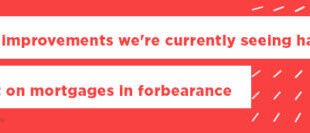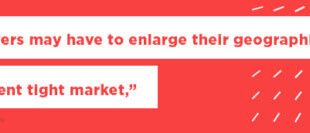Your credit rating has an enormous influence on your financial stability.
A borrowers’ credit score will determine whether they are approved for a loan or credit card. It also determines the interest rate.
Borrowers with bad credit will have a more difficult time getting approved for loans and the ones they are approved for will have high-interest rates.
In this article, we’ll be discussing credit, how it affects your life, and what you can do if you have bad credit.
Rate Search: Check Today’s Mortgage Rates
What is Credit?
Credit is a rating system that grades the likelihood an individual will pay their bills on time.
Lenders use a borrower’s credit score to determine eligibility and loan terms. The higher the credit score, the higher the probability that person will be approved, get the best loan terms, and the lowest interest rate available.
Credit Score Ranges (350-850)
- 720+ – Excellent credit
- 680-719 – Good credit
- 620-679 – Fair credit
- 619 or under – Bad credit
How Bad Credit Costs You More Money
Credit is extremely important for financial security because it means people with good credit pay less for things than people with bad credit pay. Let’s look at two different scenarios to see how detrimental having poor credit can be to one’s financial health.
- Person 1: Makes 50k per year and has a 600 credit score
- Person 2: Makes 50k per year and has a 700 credit score
Expected payments on a $ 225,000 mortgage and a $ 25,000 auto loan:
- Person 1: Mortgage payment: $ 1,200, car payment $ 560
- Person 2: Mortgage payment: $ 1,075, car payment $ 450 – $ 235 cheaper per month
Mortgage Loans – Buying a house is the biggest purchase you’ll make in your lifetime. The average home price is $ 225,000. With such a large loan amount even a half a percentage difference in the interest rate can add up to tens of thousands of dollars over the course of the loan.
There are mortgage loans for people with poor credit, you may be able to qualify for an FHA loan with just a 500 credit score. However, it is recommended you work on improving your credit before buying a home in order to get a more competitive interest rate.
Auto Loans – Everyone needs a car, people with good credit can walk into any dealership and get the best price and rate on any car they want. Someone with bad credit has to go to certain dealerships that specialize in dealing with people with credit issues. They have a small selection and take advantage by charging very high-interest rates and selling their cars above fair market value.
Credit Cards – Consumers with poor credit may have a difficult time being approved for a credit card. For those who do qualify the card they receive will usually have high-interest rates and a low credit limit.
Many people with less than perfect credit will need to open a secured credit card, where a deposit equal to the credit limit is needed, you can then use the card just as you would an unsecured card. After a period of 6-12 months of timely payments, you may be able to get your deposit back.
How Credit Scores Are Calculated
FICO credit scores range from 350 at the lowest, to the highest score of 850. They are calculated using 5 factors, payment history amounts owed, length of credit history, a mix of credit, and new credit accounts/inquiries.
35% Payment History: Making your payments on time each month with no late payments is the best thing you can do for your credit. Late payments and collection accounts will have the most significant impact on your score.
30% Amounts owed: The amount of available credit being used is your credit utilization ratio. Example: $ 10,000 credit limit with a $ 5,000 balance = 50% credit utilization ratio. (Try keeping your utilization ratio below 20%.)
15% Length of Credit History: Keeping your accounts open as long as possible keeps your average age of accounts high, which will have a positive effect on your score. The longer you have had credit, the more established you appear.
10% Types of Credit Accounts: It’s important to have different types of accounts, such as credit cards, auto loans, mortgages, and personal loans.
10% New Credit: Opening new accounts and credit inquiries have a small impact on your credit rating.
How to Improve Your Credit Score
Make your payments on time – Payment history is the biggest factor in determining your credit rating. If you have bad credit, you simply cannot afford to miss any payments.
Pay down credit card balances – The lower the balance on your credit cards are, the higher your score will be. Ideally, you will want to have a credit utilization ratio lower than 20% of the credit limit.
Open new credit accounts – If you don’t have many tradelines, you need to add some. A credit card, credit builder loan, personal loan, etc. can all help improve your credit score as they report your payments to the three credit bureaus.




